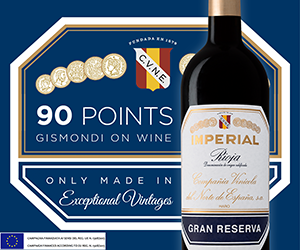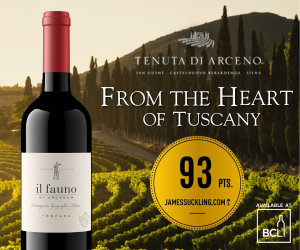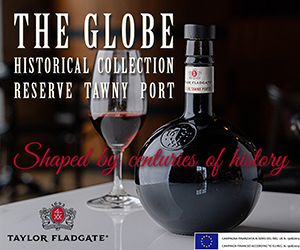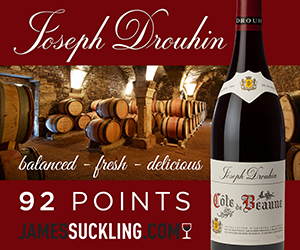Thanks to Susy Atkins at TheTelegraph in London for reminding us that if we are going to be moving offthose massive rich red wines for summer we can't haul then out as soon as wefire up the backyard barbecue.
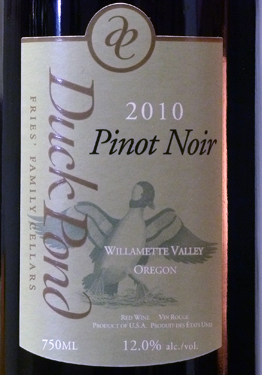
Just because you like to char your beef doesn'tmean the accompanying red wine need be a powerhouse red, full of tannin and 15or 16 per cent alcohol.
Last month, one of the most anticipatedflights of wine at the WineAlign National Wine Awards of Canada was the Gamayflight. No one could ever accuse Gamay of being rich and overbearing in the glass,although I remember a time when Beaujolais (the prime purveyor of Gamay back inthe day) was so skinny and acidic it was seldom seen outside of Paris Bistros.The point is lees is more sometimes, and in the summer, a little less tanninand a lot more fruit can be a welcome addition at the table.
Given the unusually early heat wave thatjust blanketed British Columbia, it is time we investigated the lighter side ofred at least until the rain and damp returns. But before we do, heed thiswarning, in this warm weather we are all guilty of serving our reds too warmand our whites too cold; so be sure to chill those reds in an ice bucket for 10minutes and take those whites out of the ice bucket for 10 minutes beforeserving. Restaurant servers please reread the previous sentence daily.
Back to Atkins, one of the best atmatching food and wine, who says "slightly smoky, chargrilled beef actuallyfinds a better partner in medium, fresh-tasting Italian reds such as cherryishDolcetto from Piedmont or young Sangiovese from Tuscany, or in a raspberryish,juicy red from the Loire. A marinade complicates matters, but the same lightishItalians work, or you might try a good-quality Beaujolais."
Indeed the even better news is that thisstyle of red wine is better balanced, has more acidity and actually makes thefood taste better. Thus in a strange reversal of what you may hold to be true,the wine tastes even better. It's a very empowering concept when you allowyourself to embrace the level where wine makes food better and food makes winebetter. OK I know it's just a barbecue but there is no harm in enjoyingeverything just a little bit better even before you throw in the soul boostingal fresco element that often makes everything taste better.
Atkins goes on to deal with more richlyflavoured and fatty lamb; think, "young Rioja (joven) or juicy ItalianValpolicella. A sweetly ripe, soft and succulent Pinot Noir from New Zealand orChile works nicely with plain chargrilled pork chops and even stands up well tothe classic, sweet-and-sour barbecue sauce on some ribs." Susy I like yourstyle.
Wineries seldom characterize their winesas barbecue-friendly lest we think of them as not serious. Well, I've got newsfor them. Everyone is looking for something they can take to a barbecue.Translation: an inexpensive, fun-drinking versatile wine that not only tastesgood but makes you look good too.
As suggested, the style of wine requiredis not as clear-cut but there are some caveats. Red wines should be fruityenough to breakdown the spice and heat from sauces and seasonings, yet on theother hand they should be full-bodied enough and flavourful to withstand themultitude of flavours and strong smoky tastes associated with most barbecue.
If that sounds confusing, do not let itbother you. I look at barbecues as the big wine experiment. People who neverdrink rosé or Gamay will try it at a barbecue, that goes ditto for Muscat,Riesling and Sauvignon Blanc. In essence you can dictate the wine choices withvery little fear of reprisal. Just don't burn the meat.
Castillo
de Monséran Garnacha 2011, Cariñena, Aragon, Spain
Price
$9
UPC
3378630306227
Score
87/100
Remarks Expect a raspberry jam fruit bomb
with spicy, earthy, liquorice root aromas and a fresh, round, juicy, easy palate
with more liquorice, tobacco, pepper and black raspberry flavours. A light,
friendly, fruity red that will easily tame any spicy meat dishes.
Dominio
de Punctum Lobetia Tempranillo 2011, La Mancha, Castilla-La Mancha, Spain
Price
$13
UPC
008437010828171
Score
86/100
Remarks Tempranillo from La Mancha, labelled
organic, going bio-dynamic and selling in BC for $13. Look for an intense
earthy, brambleberry, cherry/raspberry fruit nose that spills onto the palate.
The mid-palate is fresh with juicy acidity setting up this little red to easily
balance off a piece of grilled chicken or beef. Definitely Euro-style but
should be perfect around the barbecue or with a mid-summer charcuterie plate.
Good value.
Masi
Bonacosta Valpolicella Classico 2011, Veneto, Italy
Price
$17
UPC
008002062000037
Score
87/100
Remarks Bonacoasta is 70/25/5 mix of
corvina/rondinella/molinara grown
in the hills of the classico zone of
Valpolicella. Production is careful but standard and 86% of the wine is aged
six months in large Slavonian oak barrels; the remaining juice, the corvina, is
finished in smaller new Allier and Slavonian oakcasks. The nose is fresh and
floral with bits of violets and dried herbs mixed with cherries and spice.
Light, airy and fun drinking, reminiscent of Beaujolais.
Domaine
Faiveley Moulin-a-Vent 2009, Beaujolais, Burgundy, France
Price
$30
UPC
003351000910910
Score
90/100
Remarks An amazing vintage in Beaujolais
is seen in this spicy, red liquorice scented gamay with black cherry, smoky,
savoury, floral aromas. The palate is supple but dry with light tannins and
juicy sweet red fruit with fine acidity. More pepper and gamey, liquorice root
with savoury, black cherry flavours. Good intensity and balance but will
improve in the bottle.
Dominio
de Punctum Tempranillo - Petit Verdot 2011, La Mancha, Castilla-La Mancha, Spain
Price
$14
UPC
008437010828287
Score
87/100
Remarks Interesting 70/30 mix of
tempranillo/petit verdot that is now
bio-dynamically grown on sandy loam over
limestone that spends about six months in older American oak barrels after
ferment. The petit verdot appears to smooth out the mid-palate with obvious
dark cherry fruit and just a hint of milk chocolate. Round, soft, supple tasty and certainly impressive
for the price.
Duck
Pond Pinot Noir 2010, Willamette Valley, Oregon, United States
Price
$30
UPC
768154231540
Score
88/100
Remarks The Duck Pond workhorse at just
over 15,500 is a pleasant drinking pinot that spends some eight months in French
and neutral American oak. The style is light and earthy with just a touch of
cherry rhubarb. He finish is light but well balanced with just a hint of
sweetness. Pair this with lightly spice foods. For best effects. Ready to
drink.

 quicksearch
quicksearch


